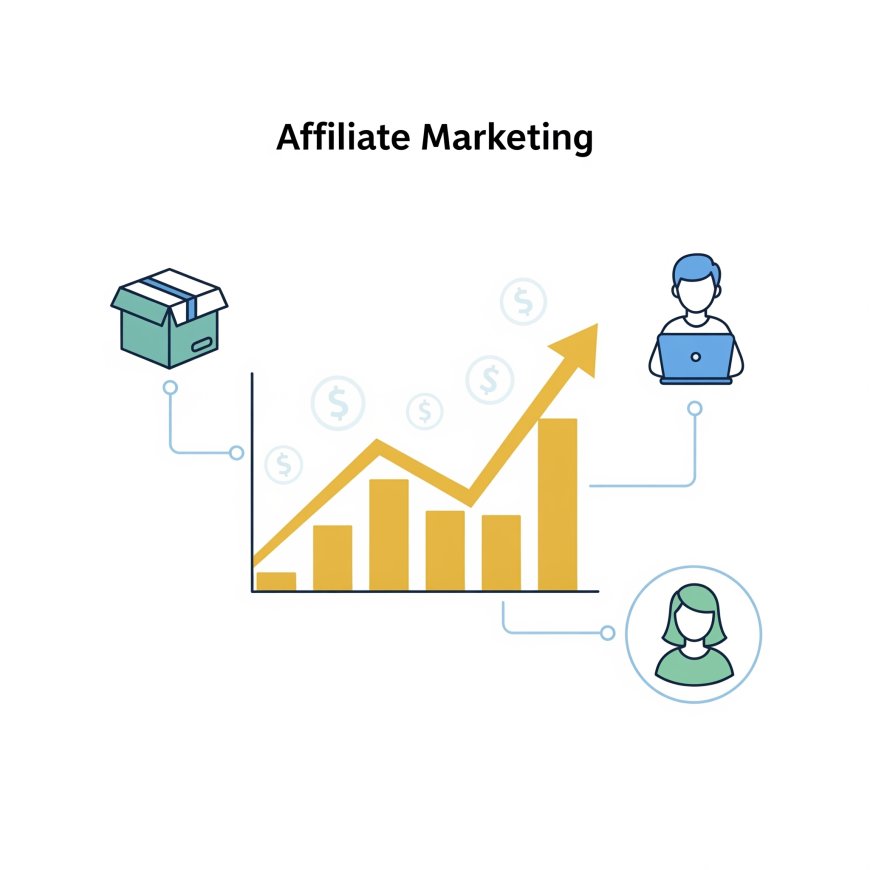Understanding Affiliate Marketing (CPA): Your Path to Online Earning
Unlock the world of online income with our beginner's guide to affiliate marketing (CPA). Learn what Cost Per Action means, how the affiliate ecosystem works, and steps to start earning commissions by promoting products and services effectively. Dive in now!

Unlocking Online Earnings: A Beginner's Guide to Affiliate Marketing (CPA)
In today's digital landscape, the internet offers countless avenues for earning income. Among the most popular and accessible is affiliate marketing, often referred to in performance-based terms as CPA (Cost Per Action) marketing. If you've ever wondered how websites recommend products and earn a commission, or how savvy marketers generate revenue without selling their own products, you're about to find out.
What Exactly is Affiliate Marketing?
At its core, affiliate marketing is a performance-based advertising model where a business (the "merchant" or "advertiser") pays individuals or other businesses (the "affiliates" or "publishers") a commission for driving traffic or sales to the merchant's products or services. It's a win-win scenario: merchants gain customers, and affiliates earn for their promotional efforts.
Think of it like being a digital salesperson without holding inventory. You promote a product or service, and when someone takes a desired action (like making a purchase, signing up for a newsletter, or filling out a form) through your unique affiliate link, you get paid.
Demystifying CPA: Cost Per Action
While "affiliate marketing" is the broad term, "CPA" or "Cost Per Action" specifies the payment model. Instead of just getting paid for a sale (which is also a type of CPA, often called "Cost Per Sale" or CPS), CPA encompasses a wider range of actions that an advertiser values.
Common "Actions" in CPA include:
-
Lead Generation: A user fills out a form, signs up for a free trial, or requests a quote. (e.g., "Cost Per Lead" - CPL)
-
Sales: A user purchases a product or service. (e.g., "Cost Per Sale" - CPS)
-
App Installs: A user downloads and installs a mobile application. (e.g., "Cost Per Install" - CPI)
-
Clicks: Though less common for direct payment now, clicks can be part of a broader funnel. (e.g., "Cost Per Click" - CPC)
-
Registrations/Sign-ups: A user registers for a free account or newsletter.
The beauty of CPA for advertisers is that they only pay when a specific, desired action occurs, making it a highly efficient advertising model. For affiliates, it opens up opportunities beyond just selling products, allowing them to earn by simply generating valuable leads or driving specific user engagement.
How Does It Work? The Affiliate Ecosystem
The process typically involves a few key players:
-
The Merchant/Advertiser: The company that creates the product or service. They provide the affiliate program and pay commissions.
-
The Affiliate/Publisher: You! This is the individual or business that promotes the merchant's product. This could be a blogger, a social media influencer, an email marketer, or a website owner.
-
The Affiliate Network: Often, a third-party platform acts as an intermediary, connecting merchants with affiliates. Networks like ShareASale, CJ Affiliate, Awin, and Impact handle tracking, payments, and reporting. They provide a marketplace for affiliates to find programs and for merchants to manage them.
-
The Customer: The end-user who completes the desired action through the affiliate's efforts.
Getting Started with CPA Affiliate Marketing
Ready to dive in? Here are the fundamental steps:
-
Choose Your Niche: Select an industry or topic you're passionate about or knowledgeable in. This makes content creation easier and more authentic.
-
Find Affiliate Programs/Networks: Research and join reputable affiliate networks that host programs relevant to your chosen niche. Many companies also run direct affiliate programs.
-
Select Products/Offers: Choose high-quality products or services that genuinely align with your audience's needs and interests. Authenticity builds trust.
-
Create Engaging Content: Develop valuable content (blog posts, videos, social media posts, email newsletters) that educates, entertains, or solves problems for your audience, naturally integrating your affiliate links.
-
Drive Traffic: Use various strategies like SEO, social media marketing, paid advertising, or email marketing to bring visitors to your content.
-
Track and Optimize: Monitor your performance using the data provided by your affiliate network. See what's working, what's not, and continuously refine your strategies for better results.
The Future of Earning Online
Affiliate marketing, particularly under the CPA model, continues to be a robust and evolving strategy for online income generation. Its flexibility, low barrier to entry, and performance-based nature make it an attractive option for anyone looking to diversify their income streams or build a full-time online business. By understanding its core principles and committing to providing genuine value, you can embark on a rewarding journey in the world of online earning.
What's Your Reaction?
 Like
0
Like
0
 Dislike
0
Dislike
0
 Love
0
Love
0
 Funny
0
Funny
0
 Angry
0
Angry
0
 Sad
0
Sad
0
 Wow
0
Wow
0




























